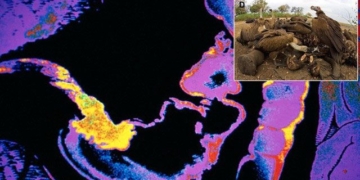Following the adverse events after vaccination in Ho Chi Minh City, the number of children hospitalized due to unusual symptoms after immunization has increased. The head of the National Expanded Immunization Program, Dr. Do Si Hien, stated that most of these symptoms are merely side effects.
According to Dr. Hien, during vaccination, the vaccine stimulates the immune system to actively fight disease. Local reactions, fever, and systemic symptoms can be normal manifestations of the body’s immune response. These reactions can present as varying degrees of symptoms, commonly including pain, swelling, redness, high fever above 38 degrees Celsius, rashes, diarrhea, headaches, and muscle pain.
|
Reactions of certain types of vaccines. – The polio vaccine may cause vaccine-derived poliovirus (incidence 1 in 5-8 million). – The measles, mumps, and rubella (MMR) vaccine may cause rashes, mild fever, lymphadenopathy, and joint swelling (incidence 1 in 2-5); encephalitis and seizures (very rare). – The tuberculosis vaccine may cause suppurative lymphadenitis and subcutaneous abscesses (incidence 1-2%)… |
Up to 90-95% of children vaccinated against tuberculosis experience local reactions such as pain, swelling, and redness. For the whooping cough vaccine, nearly half of the vaccinated children exhibit these symptoms. These symptoms are completely normal and can be easily managed: applying cold compresses to relieve pain, using paracetamol as directed to reduce fever, dressing in light clothing, and taking warm baths if children feel uncomfortable. Rehydration measures should be taken if children experience diarrhea.
Shock or adverse events after vaccination are very rare and usually present with symptoms such as anaphylactic shock, acute hypersensitivity reactions, prolonged crying, decreased muscle tone, and reduced reflexes. In these cases, parents need to remain calm and take the child to the hospital for examination and appropriate treatment. Severe shock reactions can also be overcome with proper treatment.
Dr. Hien also noted that the severity of reactions to vaccines can be due to multiple factors. Firstly, it can be related to the nature of the vaccine, one or more components, or excipients that trigger reactions in the body.
The quality of vaccination services can also lead to some abnormal symptoms. Non-sterile injections can cause abscesses, cellulitis, sepsis, toxic shock syndrome, or transmission of diseases through blood. Improper vaccine preparation, incorrect injection sites can also result in local reactions or abscesses, nerve damage. Additionally, errors in the transportation and storage of vaccines, or healthcare providers not considering contraindications during vaccination can lead to abnormal symptoms.
Post-vaccination reactions can sometimes be coincidental. This may occur in children with a history of drug allergies, congenital diseases (such as heart disease), or severe undetected infectious fever.
Moreover, a child’s psychological state can affect post-vaccination reactions. Fear during vaccination can lead to symptoms such as headaches, dizziness, tingling sensations around the mouth and hands, sometimes mistaken for allergies. This situation can spread among a group of children, especially if one child faints or has another reaction.
Additionally, there are many cases of vaccine reactions for which the cause has yet to be identified.
Dr. Hien believes that to minimize unwanted effects from vaccinations, it is essential to ensure vaccine quality and improve vaccination service quality. Parents should clearly communicate their child’s health status to the doctor before vaccination and inquire specifically about potential reactions and how to manage them. It is not advisable to invite nurses or doctors to administer vaccines at home, as the quality of the vaccine may not be guaranteed during transport, which can be very dangerous. Parents should encourage and instill confidence in their children to alleviate fear and reduce psychological pressure.
Children should not be taken for vaccinations if they have severe infectious fever or a history of allergies to vaccine components. It is best to have a medical examination beforehand to receive specific guidance from a physician.
Minh Thuy


















































